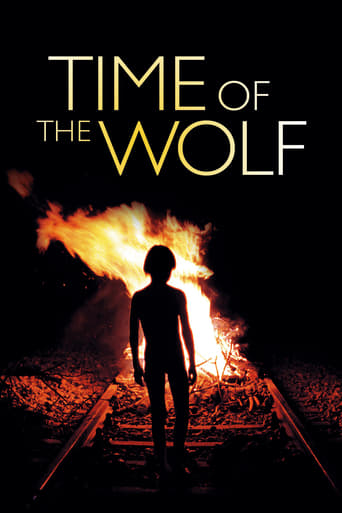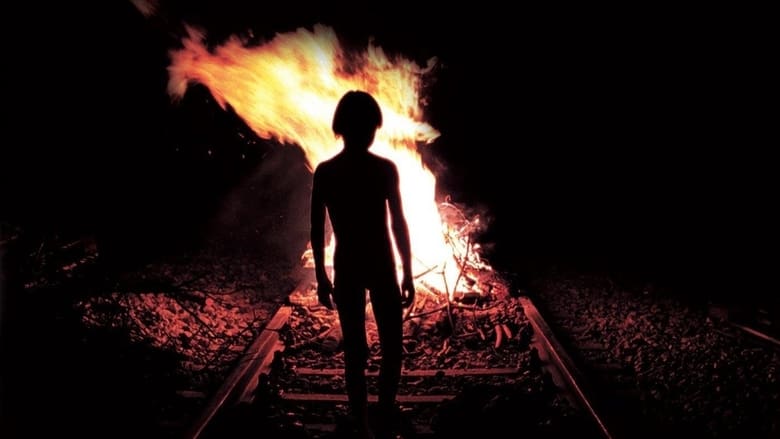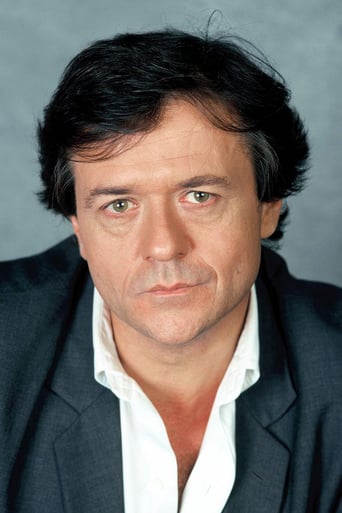Time of the Wolf (2004)
When Anna and her family arrive at their holiday home, they find it occupied by strangers. This confrontation is just the beginning of a painful learning process.
Watch Trailer
Cast


Reviews
Better Late Then Never
All of these films share one commonality, that being a kind of emotional center that humanizes a cast of monsters.
Easily the biggest piece of Right wing non sense propaganda I ever saw.
One of the film's great tricks is that, for a time, you think it will go down a rabbit hole of unrealistic glorification.
If, at the start of Time of the Wolf, you are aware of Michael Haneke's 1997 shocker, Funny Games, you may believe that this film will be treading similar grounds. Opening the film, the 2 point 4 children Laurent family arrive at their holiday shack in the wilderness of an undisclosed location. On entering, they are confronted with a man holding a shotgun towards them (his own family peering from behind him). After demanding that they hand over any goods they have, he shoots the father (Daniel Duval) dead. However, unlike the familial hostages of Funny Games, the remaining Laurent's make their way to a local for help, and the audience is startled by the matriarch, Anne's (Isabelle Huppert), admission that they had buried the father. We are certainly not in the regular world; this place is different, a point that is further exacerbated when Anne is asked if she is aware of what is going on.Time of the Wolf is unfamiliar territory concerning its central concept of a post-apocalyptic landscape. Whilst the catalyst for this disaster (?) is never revealed, there is no indication of the generic science fiction tropes of disaster. No zombie/alien, or natural catastrophe's are highlighted. The ambiguity of the nature of the devastation creates a tension that is completely absent from the ordinary, explicit films of this nature. As the family trudge their way through the countryside, they cross the distinct furnaces of bonfires, sometimes the only light source in the darkness - at one time the legs of burning cow carcasses protrude from a fire. Their final stop, a building inhabited by "survivors" waiting for a train that may never arrive.Perhaps Time of the Wolf states more about the consumer society we live in today. The shackles of consumption, and the artefacts of the modern world become useless in this context. Jewels and watches are pointless commodities, whilst lighters, water and clothing are worthy of exchange. Maybe the apocalypse is the result of dwindling resources, a reality that Earth will have to face in the future (perhaps the near), where agriculture, manufacture and natural fuel have all but disappeared. With this lack of resources, comes the desperation of the people, bringing out the worst in humanity. The strong male figures take control, whilst women are often reduced to trading in sex, and are largely marginalised in the fold. Our natural affinity as pack animals falls apart, and xenophobia erupts, targeting anything that might break the monotony and fraught situation.With a distilled colour pallet, often only lit with fire, and the bleak wilderness of fog, Haneke creates a realistic world, heaving with pain and anxiety. His precise camera movements and compositions frame the disaster as beauty. Time of the Wolf would probably not suit the regular sci-fi frequenter of post-apocalypse, it does not present itself with the same signifiers and does not portray the Hollywood hero or saviour, and it absolutely does not offer the resolution that most would need to be satisfied with. This is the hopelessness of humanity in all of its desperation, with the modern luxuries obliterated, and reduced by the lack of necessities. But with this bleakness comes horror, and the complexities of humanity. It is a hard view, but one that rewards in aesthetics, and the confluence of characters.www.the-wrath-of-blog.blogspot.com
If you want to believe that you are a superior form of humanity, watch this film and then tell everyone you know that they must see it, that it will move them deeply, and that they will never be the same thereafter. When those who do watch it tell you how bored they were, act shocked and say, "oh my goodness, how is that possible?" This is a great example of what I'd call an "anti-film." Imagine going to a contemporary art gallery for a reception, and you are the first one to arrive. You come upon a construction that features a small catapult. As you get close to it, the catapult is set off, and a small pile of feces is flung in your face. Wasn't that great "art?" If you think so, this film is for you, no doubt. I enjoy dark, disturbing films, but it still must be a good film. To provide examples of my tastes, I'll cite "The Beloved," "A Clockwork Orange," "Dogville" and "Stalker," (though not nearly as good as these, I'd much rather watch "American Psycho" than TotW).Perhaps the idea was to create a didactic experience. Does this film teach us anything? Not if you've ever seen a documentary on Nazi atrocities. For me, there must be something intriguing. The characters can all be detestable, for instance, but then something else has to "step up." There could be humor ("black"), for example. In "The Rapture," there was a sociological element that was effective (though I'm not suggesting this film was excellent - again, at least it was a "film"!). I really like the idea of an "anti-horror film," actually. Rather than having "zombies" pop up every so often and chase the leading characters around, why not show the quiet desperation people feel when they know that there are forces about to destroy them, but they don't understand those forces, and don't know exactly how (or when) they will be destroyed (which could mean actual death or a psychological "meltdown").I was hoping this would be the case for the film "Blindness" (which I saw before this one), but instead experienced a bland, rather conventional construction that was not compelling on any level. However, at least "Blindness" was a film, and not an insult to the audience. As I was watching it, I could hope that it would develop into something interesting. When it was over, I could imagine a better ending that might have made it work. In contrast, "Time of the Wolf" has so many flaws that it is simply not worth the mental effort to consider in depth. As some of the ancient Greeks realized, a "work of art" requires a central focus. Otherwise, it is decorative ornament, at best. Basically, this is an anti-hero version of "The Omega Man." Again, this is a good idea, but it's essential to execute it well, instead of creating a snide, sophomoric, pointless mess.
The film is allegorical, and the themes are complex, but if I had to state the theme in a simple sentence it would be something like this: "to keep society together we have to have people who are willing to do unselfish things instead of selfish things." There is more to it, but it is more or less comes to that. This is a laudable effort at sending a positive message, and many people will give the film high marks just because of the attempt. However, it could have been done much more skillfully. We don't really know what is going on through most of the film, and the whole idea does not become apparent until the end. Because of this the majority of the film is confusing, and drags. Even an art film has to maintain your interest and this one does so only in a very minimal way. While watching it on video, more than once I wanted to simply end off, but the people I was watching with felt they had invested enough in the film to want to see how and if it resolved. Even so, everyone was getting up a lot, looking for food in the fridge and checking their cell phones while the film was going. The concept is also not fully developed. They are in a bad part of the country where civilization has broken down. They are waiting for a train (salvation). But where is this train going to take them exactly? Why did they suddenly end up in this situation? A good allegory would answer these questions within the structure of the allegory, yet in this film we have to ignore these and other questions in order for the film to work. Isabelle Huppert, as usual, does a terrific job. The other actors do well also but Isabelle stands out. The last 5 min of the film are the best and are probably worth suffering through the first 108, at least I thought so. But that is a matter of opinion and different people will have more or less patience with the film than I did. The consensus of the group I watched it with was it wasn't worth it. I gave the film 4 stars, mainly for making the effort.
This movie follows the survivors of an unnamed apocolyptic event. The fact that the details aren't disclosed doesn't bother me. What does bother me, however, is the poor acting and lack of character development. A man is murdered for absolutely no reason whatsoever, and it doesn't seem to phase his wife or children in the least. They just keep on truckin as if nothing ever happened. And nothing else does happen, really, until another half an hour into the flick when they finally arrive at a railroad depot to join more survivors of what is probably an environmental disaster. Once there, you never get to know any of the characters except for a few of them. The rest are merely forgettable faces with no names or personalities. Nothing continues to happen for the remainder of the film, save for a few events that are confusing due to the fact that I don't really know or care who any of these people are. All in all, it's not an absolutely terrible movie, and I think that I agree with the director that human society is only as strong as its' food supply. But I found myself looking at my watch more than the movie screen.







